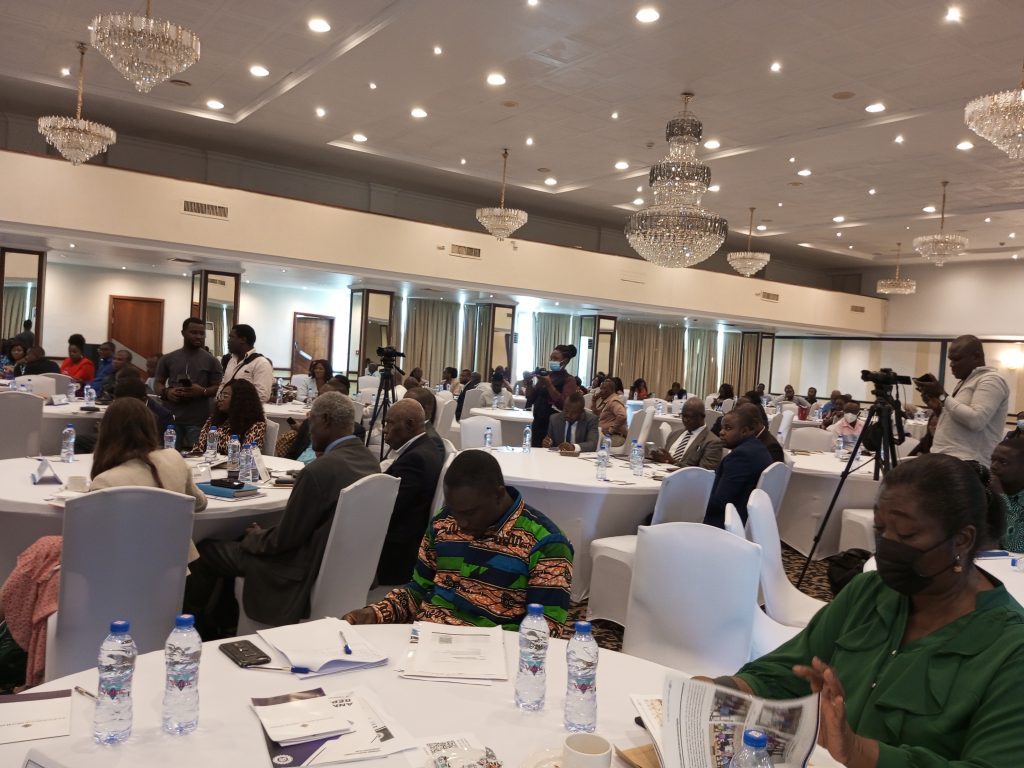By Iddi Yire
Accra, Sept 15, GNA – The Ghana Employers’ Association (GEA) has commended the Government for the decision to engage the International Monetary Fund (IMF) to help restore macroeconomic stability in the affairs of the country.
Mr Dan Acheampong, President, GEA, said the Association believed that an IMF programme would provide the urgently needed Policy credibility, restore stability and confidence in the Ghanaian economy, as well as reduce perceived risk and fears held by employers and investors.
“It is envisaged that the IMF intervention, by way of balance of payment support, will create some fiscal space for Government to pursue relevant short-term policies to return the economy to the path of fiscal consolidation and debt sustainability,” Mr Acheampong stated at the GEA’s 62nd Annual General Meeting (AGM) in Accra.
He said employers held the view that the Enhanced Domestic Programme should centre on fiscal consolidation, restoration of debt sustainability, robust monetary and financial sector policies as well as prudent exchange rate management measures.
This year’s AGM on the theme “Sustainable Business in the midst of Macroeconomic Challenges”, offered members of the Association the opportunity to reflect on their activities in 2021 and to strategize on their objectives and plans for the ensuing year.
The AGM took the decision to unanimously maintain the Executives of the Association for another tenure with Mr Acheampong as President and Mr Alex Frimpong as the Chief Executive Officer (CEO).
The rest are Dr Emmanuel Adu-Sarkodee, First Vice Chairman; Mrs Victoria Hajar, Second Vice Chairman and Dr Aboasu Amponsah-Kodua, the Treasurer.
At the event, Mr Bright Wireko-Brobby, the Deputy Minister of Employment and Labour Relations, launched the Occupational Safety and Health (OSH) Guidelines, which were developed by the Association based on International Labour Standards.
Mr Acheampong said to augment fiscal consolidation, the GEA entreats the Government to speed up the implementation Tax Exemption Bill, which had just been passed by Parliament, to render efficient and effective tax exemption management.
He recommended that the benchmark value policy be reviewed to cover imported goods that were not produced locally, and a sunset clause provided for goods produced locally, but not in sufficient quantities while efficiently implementing enduring import substitution policies for same.
He said the trend of events also required that various Government flagship programmes be reviewed and streamlined to make them achieve their intended objectives without any significant fiscal pressure.
He cited that the recent announcement by the Ministry of Finance to end the Nation Builders Corps (NABCo) programme and encouraged the beneficiaries to take advantage of the YouStart intervention was a welcome step; saying “we believe that this will create some fiscal space for Central Government to operate”.
Mr Ignatius Baffour-Awuah, Minister of Employment and Labour Relations in a statement read on his behalf, said the congenial and calm atmosphere in the industrial sector that the country had witnessed over the past six years was due to a positive collaboration between the Government and organised labour.

He said the importance of social dialogue in industrial relations could not be overemphasized, and that over the years it had become abundantly obvious how potent and strategic social dialogue would be in addressing issues of common interest among government, workers, and employers.
Madam Abena Osei-Poku, Managing Director, Absa Bank Ghana, who delivered the keynote address, advised employers to take advantage of the economic uncertainty to make their business more effective so that when the operating environment improves, they would be in an even better position to grow sustainably taking advantage of emerging trends and opportunities.
She urged employers to prioritize their customers by focusing on creating something that truly added value for their customers.
Mr Alex Frimpong, CEO, GEA, in his report to the AGM said nothing withstanding the current challenges in the business space, the industrial relations climate was peaceful owing to continuous and timely consultations, dialogue and negotiations at both the bipartite and tripartite levels to resolve issues and avert potential industrial unrest in the country.
He noted that complaints reported to the National Labour Commission (NLC) declined from 673 in 2020 to 458 in 2021.
GNA